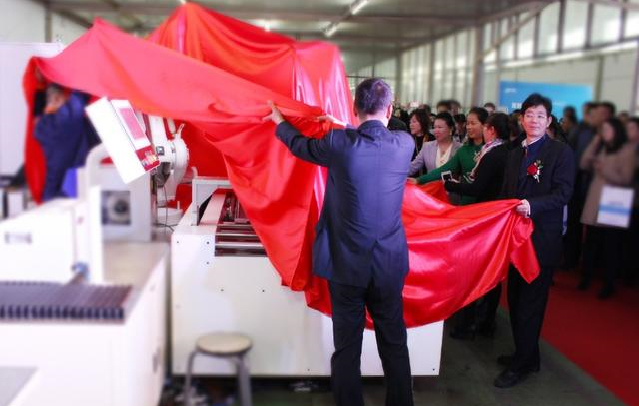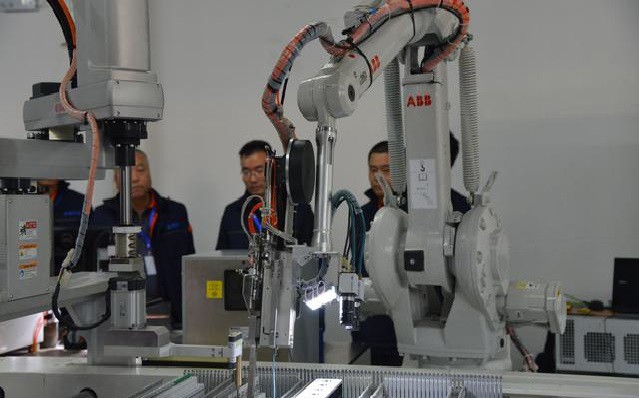Service Hotline
13751780907
13922748515
"Made in China 2025" is the guiding principle for the first decade of my country's manufacturing powerhouse strategy. "Intelligent Manufacturing" is positioned as the primary focus of China's manufacturing efforts. This initiative impacts the development of the domestic industrial automation industry. Promoting digital and intelligent manufacturing as a key driver presents significant opportunities for the automation industry. Therefore, on November 8th, Beijing Jinyu Technology Automation Technology Co., Ltd. held a customer presentation on its automated assembly system for electrical control cabinets at the Tongzhou Opto-Mechatronics Industrial Base. Leaders from the industry's science and technology commission, industry experts, media outlets, and customer representatives gathered to share and discuss their contributions to the automation system industry.
At the meeting, Director Fu Wenjun of the Culture and Technology Development Department of the Beijing Municipal Science and Technology Commission fully recognized Jinyu Technology's products and briefly outlined the Commission's focus on integrating design, technology, and culture. Finally, he encouraged our company to accelerate the commercialization of its technological achievements and contribute to the development of industrial automation. Director Tian Xinghua of the Daxing District Science and Technology Commission first congratulated Jinyu Technology on its successful achievements, explained Daxing District's "Mass Entrepreneurship and Innovation" initiative, and invited Jinyu Technology to establish a presence in Daxing to further enhance its innovation capabilities and growth. Six guests, including leaders from Red Star Fund and client representatives, delivered speeches.
The star attraction of the promotional event, the intelligent assembly system for industrial control cabinets, was unveiled the moment General Manager Xu Baogang and seven guests unveiled it. The robotic arm flexibly grasped components for assembly, while the wiring system accurately routed wires according to blueprints, leaving the guests in awe.
The automated equipment system for electrical control cabinets receives basic assembly data transmitted by a higher-level system and, using a combination of industrial computers, robots, and industrial vision, integrates with the real-world environment. It automates sheet metal processing, guide rail and duct processing, wire harness fabrication, automated wiring, and quality inspection. This model significantly reduces labor costs and processing time, improves wiring accuracy, and significantly impacts and enhances the development of the electrical equipment industry.


This assembly system also enables flexible and mixed-line production. In the past, production lines required strict product consistency, and most could only produce a single type of product. However, the current market trend is towards diversified and fragmented orders. Intelligent assembly systems can simultaneously produce multiple product models on a single production line. Production efficiency is no longer limited by order quantity, and small batch orders can further enhance production advantages, truly realizing a personalized and customized production model. Traditional assembly plants are prone to errors if they implement mixed-line production. Integrated automation solutions largely replace the human brain, vision, and hands, with back-end databases and computers performing much of the work. This allows for a first-pass pass rate of over 99% and reduces delivery time by 50%. Efficiency, flexibility, and speed are the changes this project is bringing to the manufacturing industry.
The successful integration of new-generation information technologies such as the internet, cloud computing, and big data into industrial robots provides society with automated production capabilities in "unmanned factories." Jinyu Technology will continue to increase its R&D efforts, rapidly transforming interim research findings into production, and contributing to the transformation of the industrial control industry driven by smart factories.